Poland's LGBT Community Under Fire Ahead Of Elections
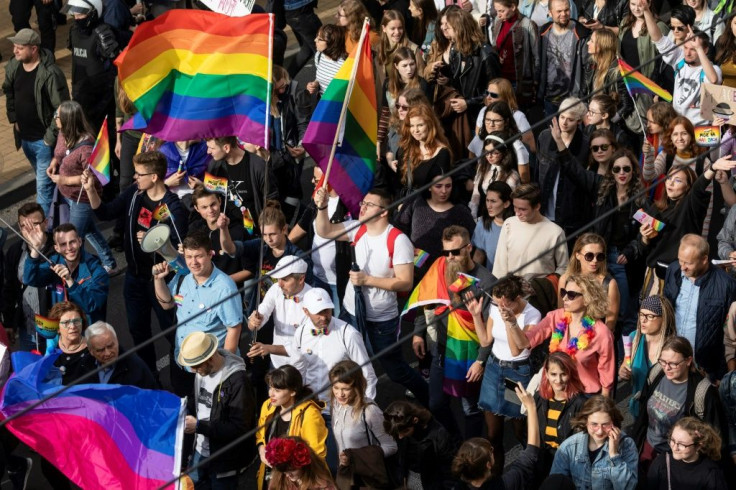
Walking hand-in-hand and kissing in public is something that gay couples in the conservative eastern Polish city of Lublin can do safely only once a year, at the local pride parade, albeit behind a thick cordon of heavily armed riot police.
Far-right groups and conservative campaigners staged violent counter-protests at the parade in late September and several similar events across Poland this summer.
Police said this week they had arrested two counter-protesters who brought potentially deadly home-made bombs fashioned from gas canisters and fire-crackers to Lublin pride.
Lesbian, gay, bisexual and transgender (LGBT) rights have become a hot button issue in Poland ahead of the October 13 general election in the heavily Catholic country.
Unlike most of its fellow EU members, Poland does not recognise any form of homosexual union.
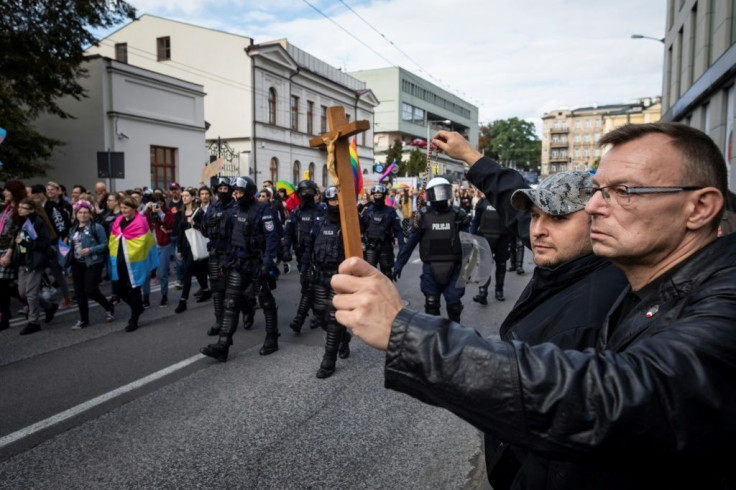
The highly influential Catholic Church and the governing right-wing Law and Justice (PiS) party, the odds-on favourite to win the election, have launched blistering attacks on the LGBT community in the campaign preceding it.
Archbishop Marek Jedraszewski labelled the community a "rainbow plague".
Powerful PiS leader Jaroslaw Kaczynski, widely viewed as Poland's de facto powerbroker, thanked the cleric for his words and accused the LGBT community of posing a "threat" to the traditional family.
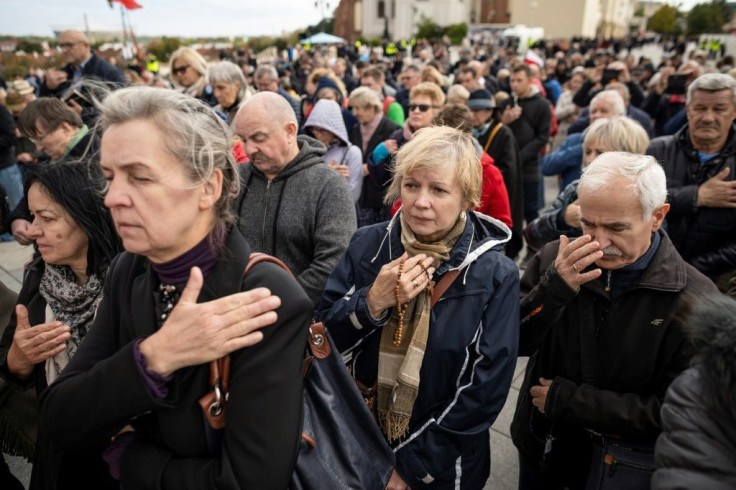
Kaczynski's position on gay rights is "unique in European mainstream politics" and "reminiscent of the standards of (President Vladimir) Putin's Russia," according to Piotr Pacewicz, editor-in-chief of OKO press, an acclaimed Polish website for investigative journalism and fact-checking.
'Set fire'
The anti-gay rhetoric being spread by Poland's arguably two most powerful institutions is creating a climate of fear that is taking a toll on the mental health of some members of the gay community.
A lesbian couple in their early thirties living in Lublin say they fear for their lives and those of their children.
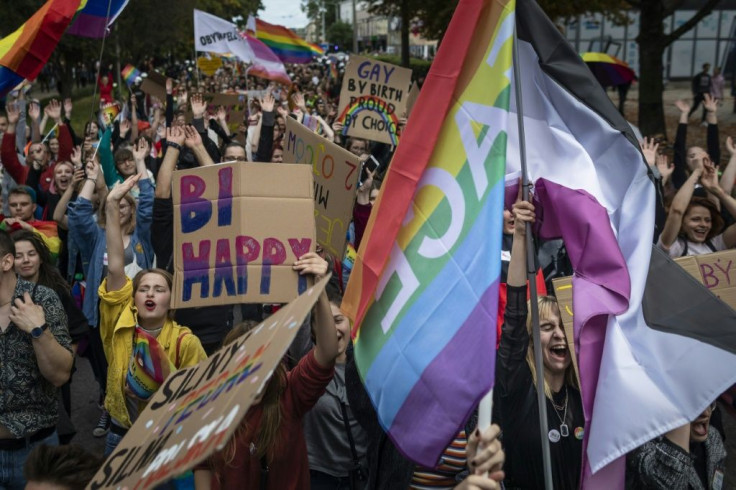
"I'm afraid that we or our children will be attacked, I'm afraid of being humiliated in front of children, I'm afraid my car will be vandalised or that someone will set fire to our flat," one of the women told AFP, speaking on condition of anonymity.
"We would never dare to hold hands in public in Lublin," she added.
One of the women said that she is considering taking legal action in connection with workplace harassment over her sexual orientation.
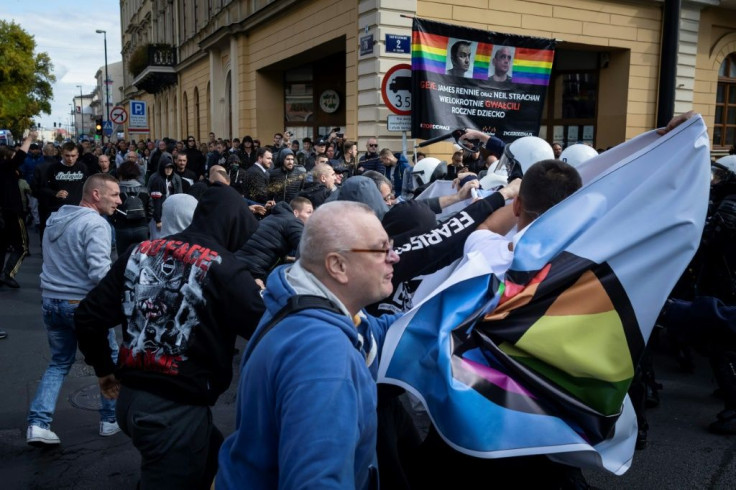
The other says her ex-husband became sharply homophobic, controlling and abusive when she said she was leaving him for a woman.
'LGBT ideology'
Tomasz Pitucha, a PiS party member and Lublin city councillor in charge of family affairs, opposed the march and insisted that the gay community is itself to blame for triggering violent counter-protests by the far-right and others.
"Gay pride and other LGBT marches are provocations against society," the 50-year-old told AFP.
"No one is hunting homosexuals, but if these people show up and march, it triggers a variety of reactions."
Earlier this year, PiS-allied Lublin authorities handed out awards to local officials for publicly opposing "LGBT ideology", which they said, "goes against the family, the nation and the Polish state".
Ten kilometres (six miles) from Lublin, the city of Swidnik in March became the first of some 30 municipalities in Poland to adopt resolutions declaring themselves to be "free of LGBT ideology".
Although the resolutions are not legally binding, they encourage elected officials to make sure that sex education, including information of sexual diversity, is kept out of schools.
"We oppose 'ideology LGBT' (LGBT rights), which is ever more prevalent in the international public arena," Andrzej Manka, a Swidnik local official told AFP.
"We consider it harmful and oppose it being promoted by public institutions."
A safe place
Some members of Poland's LGBT community are optimistic about the future despite the avalanche of anti-gay rhetoric that has dominated the election cycle.
"It's the political class that forbids our love, but society is more open-minded," Tomasz Kitlinski, an openly gay university professor from Lublin who is running as a leftwing candidate in the election.
Fifty-seven percent of Poles favour the legalisation of civil union for same-sex couples, according to a recent survey.
But the fact that the PiS is poised to win another four-year term is pushing some members of the LGBT community to consider leaving Poland.
"Lately, we've been wondering whether we have any chance to live a normal, safe life and raise our children in Poland," says one of the lesbians in the couple from Lublin.
"We'll see what the climate will be after the elections; we may need to find another place where we can be safe."
© Copyright AFP 2024. All rights reserved.




















